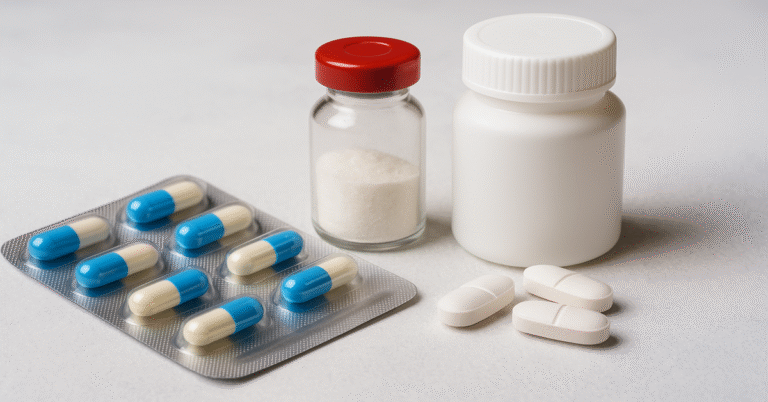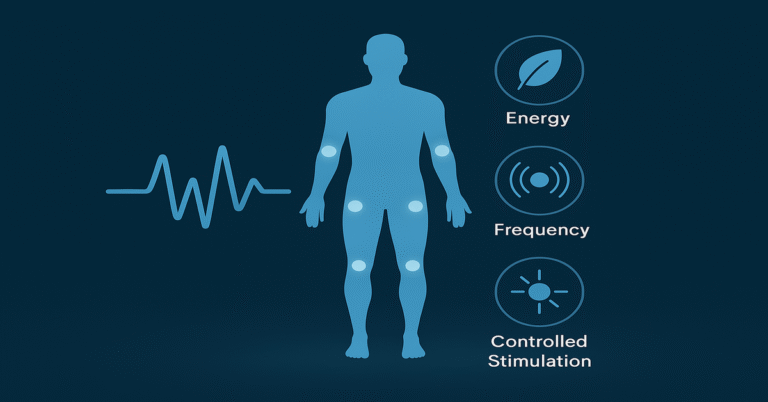
Pregnancy is often described as a journey full of hope, expectation, and transformation. Yet, for many individuals and couples, this journey does not always begin or proceed as anticipated. One of the earliest complications that can occur in pregnancy is known as a chemical pregnancy. Although the term may sound technical and unfamiliar to some, it is more common than many people realize. In fact, chemical pregnancies account for a significant portion of early miscarriages, often before a person is even aware they are pregnant.
This article will provide a thorough and compassionate examination of chemical pregnancy. We will explore what it is, how it happens, why it occurs, its symptoms, diagnostic methods, treatment, emotional consequences, and prevention strategies. Tables will be provided for clarity, and real-life contexts will be integrated to make the discussion relatable. By the end of this article, you will have a well-rounded understanding of chemical pregnancy, both medically and emotionally.
1. What is a Chemical Pregnancy?
A chemical pregnancy is an early miscarriage that occurs within the first five weeks of conception, usually before an ultrasound can detect a developing embryo. The term “chemical” comes from the fact that the pregnancy is detected through biochemical means (i.e., a blood or urine test showing elevated levels of the pregnancy hormone, hCG) rather than through physical signs seen on an ultrasound.
In most cases, the fertilized egg implants into the uterine wall and begins to release hCG, leading to a positive pregnancy test. However, the embryo fails to develop properly and the pregnancy ends before it can be visualized by a healthcare professional.
2. Why Does a Chemical Pregnancy Occur?
Chemical pregnancies happen for many reasons, most of which are related to chromosomal or genetic abnormalities.
Common Causes:
| Cause | Explanation |
|---|---|
| Chromosomal Abnormalities | Errors in the genetic material of the embryo prevent proper development. |
| Implantation Issues | The fertilized egg may not implant correctly in the uterus. |
| Hormonal Imbalances | Conditions like luteal phase defects or low progesterone can interfere. |
| Uterine Abnormalities | Fibroids, scar tissue, or abnormalities in the uterine lining can hinder growth. |
| Immune Factors | The immune system may mistakenly attack the embryo. |
| Maternal Age | The risk increases significantly for women over age 35. |
| Lifestyle Factors | Smoking, alcohol, and uncontrolled chronic illness can contribute. |
Although these causes may seem daunting, it is important to note that a single chemical pregnancy does not necessarily mean a person has long-term fertility issues.
3. Symptoms of a Chemical Pregnancy
The symptoms of a chemical pregnancy often mimic a late menstrual period or very early miscarriage. This sometimes makes it difficult for people to even realize they were pregnant.
Common Symptoms:
- A positive pregnancy test followed by a negative test within a few days.
- Vaginal bleeding that resembles a heavier menstrual period.
- Cramping in the lower abdomen.
- Passing small blood clots or tissue.
- A sudden drop in early pregnancy symptoms like breast tenderness or fatigue.
Distinction from Normal Menstruation
While a menstrual period involves shedding of the uterine lining when no pregnancy occurs, a chemical pregnancy represents an actual fertilization event that failed shortly after implantation. The bleeding may be slightly heavier or later than normal menstruation, but the difference is often subtle.
4. Diagnosis of Chemical Pregnancy
Diagnosis usually involves:
- Home Pregnancy Tests: A faint positive result followed by a negative can indicate chemical pregnancy.
- Blood Tests (hCG levels): In normal pregnancy, hCG doubles every 48–72 hours. In a chemical pregnancy, levels rise briefly then decline.
- Ultrasound: Typically does not show a gestational sac because the pregnancy ends before it can be detected.
Doctors often confirm chemical pregnancy retrospectively when hCG levels fail to rise as expected.
5. Emotional Impact of Chemical Pregnancy
Even though chemical pregnancy occurs very early, the emotional impact can be profound. Individuals and couples may feel grief, confusion, or guilt. Because the pregnancy ended before it was clinically confirmed, friends and family may not always understand the depth of the loss.
Emotional Responses May Include:
- Sadness or Depression: Mourning the loss of potential parenthood.
- Guilt or Self-Blame: Feeling responsible despite most cases being uncontrollable.
- Confusion: Not understanding why the loss happened.
- Anxiety About Future Pregnancies: Worrying about recurrence or fertility problems.
Healthcare providers often stress that emotional healing is just as important as physical recovery. Counseling, support groups, or open discussions with partners and family can provide much-needed comfort.
6. Treatment After a Chemical Pregnancy
In most cases, no medical treatment is required for a chemical pregnancy, as the body naturally expels the pregnancy tissue. However, medical guidance can be important in specific situations.
Management Options:
| Approach | Details |
|---|---|
| Observation | Most cases resolve naturally with bleeding similar to menstruation. |
| Blood hCG Monitoring | To ensure hormone levels return to baseline. |
| Medical Evaluation | Recommended if chemical pregnancies occur repeatedly (≥3 times). |
| Underlying Condition Care | Treatment for hormonal imbalances, thyroid issues, or uterine abnormalities. |
| Emotional Support | Therapy, support groups, or counseling to cope with grief and anxiety. |
After one chemical pregnancy, most people can conceive again without complications.
7. Can Chemical Pregnancies Be Prevented?
While not all chemical pregnancies can be prevented, some risk factors can be minimized.
Prevention Strategies:
- Healthy Lifestyle: Avoid smoking, alcohol, and recreational drugs.
- Nutritional Support: Maintain balanced diet, folic acid, and prenatal vitamins.
- Medical Management: Treat chronic conditions like diabetes or thyroid disorders.
- Hormonal Support: Progesterone supplementation in cases of luteal phase defect.
- Regular Check-ups: Fertility specialists can provide testing if recurrent losses occur.
It is vital to understand that most chemical pregnancies are random events due to chromosomal abnormalities and are not caused by anything the mother did or did not do.
8. Chemical Pregnancy vs. Miscarriage
Chemical pregnancy is technically a form of miscarriage, but it occurs so early that many people do not realize they were pregnant.
| Aspect | Chemical Pregnancy | Clinical Miscarriage |
|---|---|---|
| Timing | Before 5 weeks of pregnancy | After 5 weeks up to 20 weeks |
| Detection | Positive test only; no ultrasound findings | Confirmed on ultrasound (gestational sac visible) |
| Symptoms | Early bleeding, mild cramps | Heavier bleeding, more pronounced cramps |
| Emotional Impact | Often unrecognized, but still emotionally hard | Typically more visible and widely recognized |
9. Frequency of Chemical Pregnancy
Research suggests that up to 50–60% of all miscarriages are chemical pregnancies. Many go unnoticed, as they happen before a person confirms pregnancy. For couples trying to conceive, chemical pregnancies can be more apparent, especially if frequent testing is done.
10. Impact on Fertility
A single chemical pregnancy does not usually affect long-term fertility. Most people who experience one go on to have healthy pregnancies later. However, recurrent chemical pregnancies may signal an underlying condition that requires medical evaluation.
11. Coping and Recovery
Coping with a chemical pregnancy involves both physical and emotional aspects.
- Physical Recovery: The body typically recovers quickly, and ovulation may resume within weeks.
- Emotional Recovery: Grieving is personal and valid; some may need professional support.
- Relationship Support: Couples should communicate openly about feelings and expectations.
12. When to See a Doctor
Medical evaluation is recommended if:
- Chemical pregnancies occur more than two or three times.
- Bleeding is excessively heavy or prolonged.
- Severe abdominal pain accompanies the loss.
- There are signs of infection (fever, foul discharge).
Doctors may perform fertility assessments, genetic testing, or uterine imaging to identify underlying issues.
13. Real-Life Scenario
Consider a woman who has been trying to conceive for six months. She takes a pregnancy test a few days after her missed period, and it shows faintly positive. Excited, she repeats it two days later, but the result is negative. A week later, she experiences heavier-than-normal bleeding. Upon visiting her doctor, she learns it was a chemical pregnancy. While heartbreaking, her doctor assures her that such events are common and that her chances for future healthy pregnancy remain high.
This example illustrates how chemical pregnancies often appear and resolve before full clinical recognition.
14. Conclusion
Chemical pregnancy is an early pregnancy loss that happens before many people even realize they are pregnant. While it can be emotionally painful, it is usually not a sign of infertility or long-term reproductive problems. Understanding the causes, recognizing symptoms, seeking medical evaluation if necessary, and giving oneself time to heal emotionally are all crucial steps.
Awareness about chemical pregnancies helps remove stigma and confusion, allowing people to grieve their loss, seek support, and move forward with informed choices for their reproductive journey.
FAQs
Q1: Is a chemical pregnancy the same as a miscarriage?
Yes, it is a very early miscarriage that occurs before five weeks of pregnancy.
Q2: Can I get pregnant again after a chemical pregnancy?
Yes, most people go on to have healthy pregnancies afterward.
Q3: How soon after a chemical pregnancy can I try again?
You can usually try again after your next normal menstrual cycle, but consulting a doctor is wise.
Q4: Are chemical pregnancies preventable?
Not always. Many occur due to chromosomal abnormalities beyond control, though a healthy lifestyle helps reduce risks.
Q5: Do chemical pregnancies affect future fertility?
One chemical pregnancy typically does not impact fertility, but recurrent ones may require medical evaluation.






